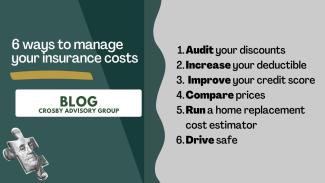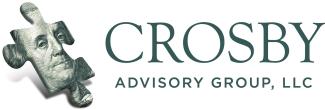
6 Steps to Combat Rising Insurance Rates
How can I combat rising insurance prices?
Consumers across our nation are burdened with the cost of rising insurance rates on home and auto insurance. This is a trend that has continued since the Covid-19 lockdowns when the insurance industry faced a perfect storm of inflation and self-inflicting wounds. During the initial stage of the Covid-19 lockdowns many insurance companies began issuing discounts or refunds on auto insurance, figuring that the number of claims would go down with people working from home. Initially, their assumption was true.
However, as government restrictions eased people were eager to get back to normal life. Supply chains for parts, materials, and service were interrupted from Covid-19 and the cost of these items soared with inflation. Those with vehicle leases may recall that they were able to buy out their lease and immediately resell their vehicle for significantly more value than the original purchase price. Meanwhile, insurance companies were still collecting rates based on pre-Covid vehicle and material costs.
The mismatch of rates and claims wasn’t just limited to vehicles. According to Grange Insurance, the average cost for a roof repair from wind damage in 2018 was $12,086 and by 2023 that average cost had risen to above $17,000. In 2018, the average cost to repair fire damage was $235,199 and in 2023 that cost had risen above $313,000. The reality is that higher insurance rates are here to stay for the foreseeable future. Historically, the insurance industry goes through a series of rising and falling rate cycles, which they refer to as hard and soft markets. Knowing that we are in the midst of a hard market for insurance rates, there are several steps you can take to help reduce price increases.
6 steps to take:
- Have your agent run an audit of your discounts. Placing your auto insurance with the same company that you use for your home or renters' insurance will typically result in a discount of 15% or more. If you have gotten a new roof in the past 5 years, make sure your agent knows about it. Security systems and fire monitoring services on the home typically result in premium decreases as well. Whole-house generators will typically reduce the cost of water backup-coverage. If you have paid off your home, insurance companies will typically give a mortgage free discount and if you are claim-free over the past 5 years, that will also reduce rates. If you have a young driver on your policy, discounts are available for students who carry a B average or above, and safe driving courses.
- Carry a deductible that is the highest you can comfortably pay. In financial planning, the rule is we don’t insure something that won’t cause a financial hardship. This is what our emergency accounts are for, to absorb life’s small to moderate setbacks. If Mark Doright has 3-6 months of income in an emergency account, he does not need to carry $500 deductibles on his home and autos. Higher deductibles will result in lower insurance costs. It will also help you to manage your policy, so you are not enticed to turn in a small claim.
- Keep your credit score high. Insurance companies use credit as part of their rate formula. Higher scores result in lower insurance premiums. You can visit Experian.com for a free credit report and remember, obtaining an annual report does not hurt your credit score.
- Have your agent compare prices. Make sure you are comparing prices at renewal, because chances are, your renewal will result in an increase.
- Have your agent run a replacement cost estimator on your home. Home insurance policies have an inflation guard built into them that is designed to make sure the coverage on your home keeps pace with inflation. These inflation guards are not perfect. Sometimes they cause the home to be insured for more than their actual replacement value.
- Drive safe. Speeding tickets and moving violations compound the problem of rising insurance rates. Insurance companies typically look back 36 months for standard moving violations. A clean record will help ensure you obtain the best rates.
For a free insurance review, reach out to our insurance specialist Julie Maglott (email: julie@nmdinsurance.com // phone: 419.496.0770).
Disclaimer: Crosby Advisory Group, LLC provides financial planning, business growth strategies and Insurance protection. CAG is a registered investment advisor. Investing involves risk including the potential loss of principal. Consider all risks before investing.

